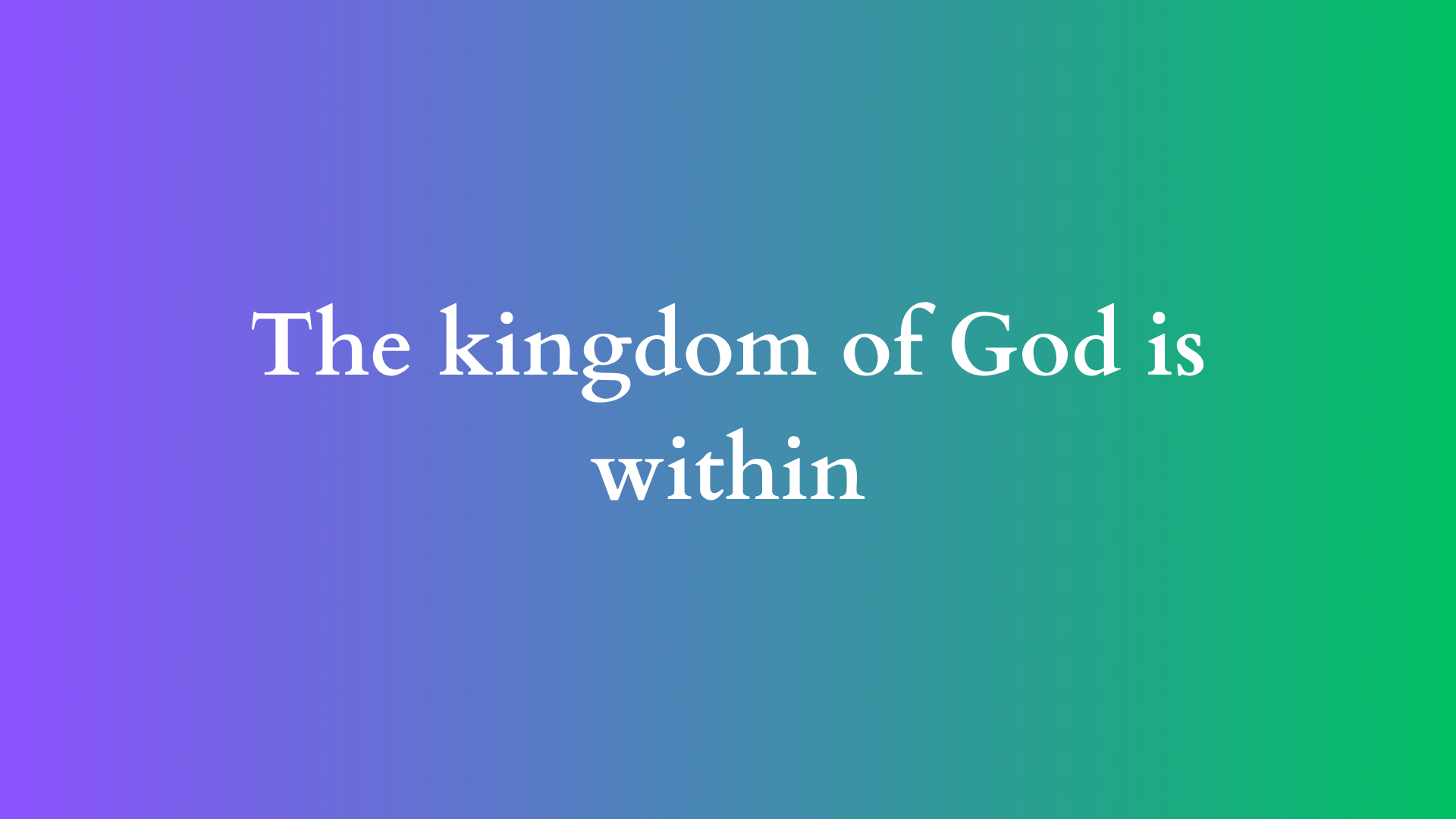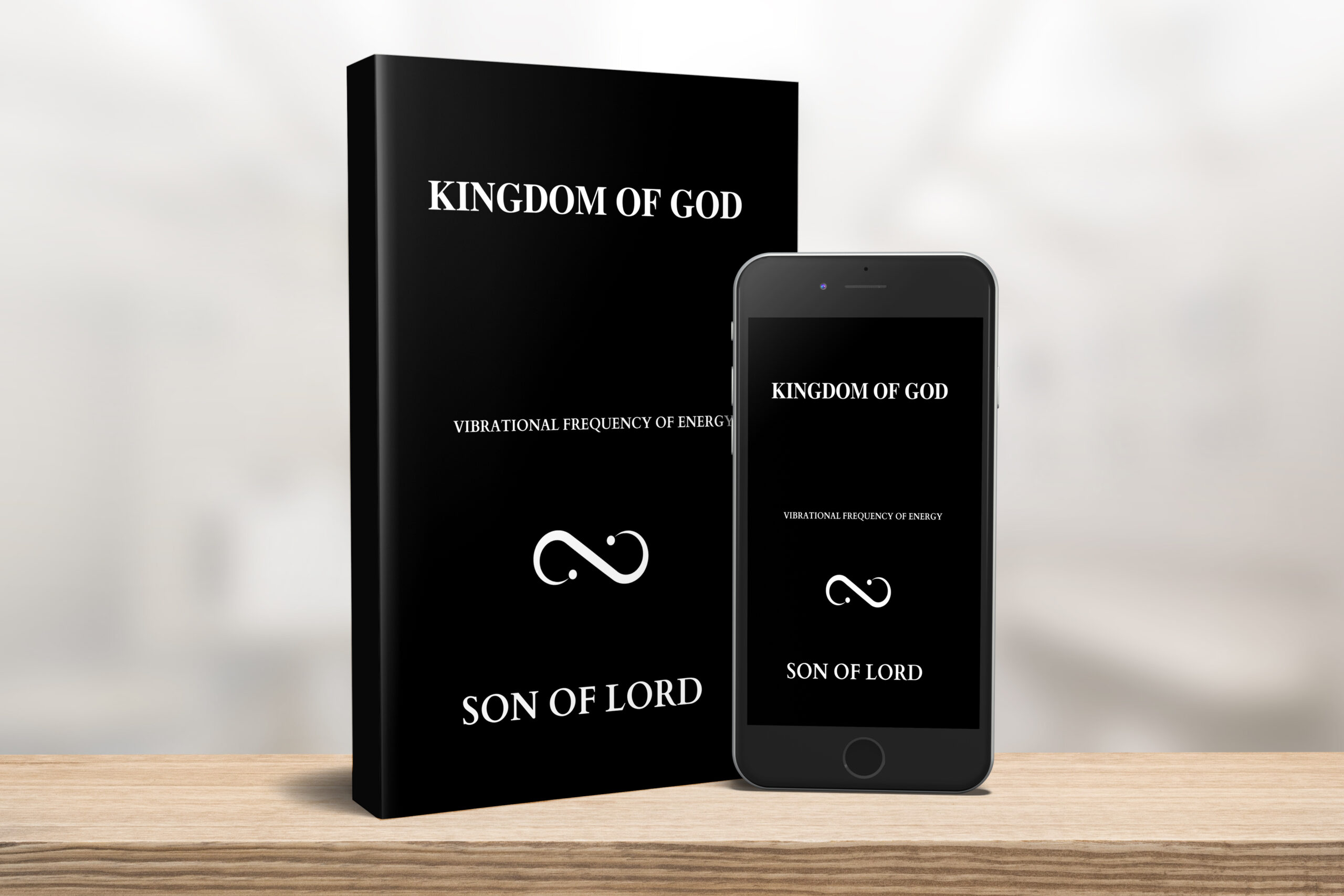Understanding the Kingdom of God is Within You: A Profound Exploration
The phrase “the kingdom of God is within you” originates from the Christian scripture, specifically from the Gospel of Luke, chapter 17, verse 21. In this setting, Jesus is responding to the Pharisees’ inquiries about the coming of the kingdom of God. This declaration has profound theological connotations and has sparked diverse interpretations across different religious and spiritual contexts. This blog post aims to unpack the meaning of this powerful phrase, exploring its implications on personal spirituality, community, and societal transformation.

Historical Context
To fully grasp the significance of Jesus’ statement, it is crucial to delve into the historical and cultural context in which it was made. The Jewish expectation of the Messianic Kingdom during Jesus’ time was laden with political and social implications. Many envisioned a literal kingdom that would overthrow Roman rule and restore Israel to its former glory. However, Jesus’ teachings often subverted these expectations. He emphasized an inner transformation rather than an external political victory.
In ancient traditions, the kingdom of God was interpreted as a future hope, a physical realm to be realized at the end of times. Yet, Jesus presented an alternative perspective—one that transcends the literal and invites followers to realize and embody the kingdom in their own lives. This shift from external to internal invites believers to examine their inner landscapes and cultivate a personal, intimate relationship with the divine.
A Deep Dive into “Within”
The concept of the “kingdom of God within you” challenges adherents to look inward. This doesn’t imply that the kingdom is an abstract or intangible notion; rather, it signifies an experiential reality. It suggests that the divine is not removed from our existence but is integrally woven into the fabric of our being.
- Inner Transformation: The kingdom of God being within implies that transformation begins at the individual level. It invites practitioners to engage in a journey of self-discovery, where love, peace, and righteousness flourish from within. As individuals cultivate virtues such as compassion, forgiveness, and humility, they contribute to a broader realization of God’s kingdom on earth. This process necessitates introspection and a willingness to confront personal limitations and biases.
- Belief and Faith: Understanding the kingdom as something that dwells within invites a profound reflection on belief systems and faith. Faith is often perceived as an external act—going to church, participating in rituals, or adhering to religious doctrine. However, the internal manifestation of faith requires a deeper exploration of one’s relationship with the divine. It beckons believers to consider how their personal beliefs align with their inner experiences and realities.
- Authenticity and Wholeness: The inner kingdom encourages authenticity. Often, societal pressures and external expectations lead individuals to fragment their lives; we often wear different masks based on social situations. The kingdom of God within calls for an authentic and unified self, where values align with actions. Individuals can cultivate a sense of wholeness when they recognize their intrinsic worth and the divine spark within them.
The Implications for Community
While the kingdom of God is an individual journey, it has profound implications for community and societal dynamics. When individuals begin to recognize and nurture the kingdom within themselves, they simultaneously contribute to the collective embodiment of that kingdom.
- Building Community: An essential aspect of the kingdom’s presence is community. When people are engaged in internal transformation, they are more likely to embody and share the virtues of kindness, empathy, and forgiveness. Such communities cultivate environments conducive to healing and growth. This can lead to constructive dialogue about social justice, inclusivity, and compassion within neighborhoods, families, and congregations.
- Social Justice: The realization of the kingdom of God within also carries a mandate for social justice. As individuals recognize the divine presence within, their call to action extends beyond themselves. Addressing social inequalities, championing the marginalized, and advocating for peace become integral to their mission. Acknowledging the divinity in every individual fosters a commitment to uplift others.
- Spiritual Activism: The inner kingdom inspires movements of spiritual activism. Engaging in actions that reflect the values of the kingdom—such as service to others, activism for the marginalized, and environmental stewardship—reflects a living testament to the belief that God’s kingdom is present in our world. Such activism is rooted in the understanding that outward change stems from inward transformation.

The Philosophical Reflection
The phrase “the kingdom of God is within you” invites philosophical inquiry—even beyond religious contexts. Its implications resonate with various disciplines, including psychology, philosophy, and spirituality.
- Mindfulness and Presence: Many contemporary spiritual practices emphasize mindfulness—being present in each moment, cultivating awareness of thoughts and emotions. This echoes the message that the kingdom of God lies within our ability to be mindful of our reality, our experiences, and our interpretations of life.
- Psychological Wellbeing: The journey inward can lead to profound psychological healing. Acknowledging and healing past wounds fosters forgiveness and reconciliation with oneself. Various psychological theories emphasize self-actualization, which dovetails with the idea that recognizing the divinity within oneself can lead to achieving one’s fullest potential.
- Philosophy of Existence: Philosophers have long grappled with the meaning of existence and consciousness. The assertion that the kingdom of God dwells within prompts reflection on the nature of reality and individual purpose. It invites individuals to question their place within the universe and the significance of their actions on a broader scale.
Conclusion
The statement “the kingdom of God is within you” serves as a timeless reminder of the profound potential within every individual. It challenges us to seek transformation from within, engage authentically with ourselves and others, and strive for a world that reflects the divine qualities of love, justice, and peace. By recognizing that the kingdom is not a distant future but an ever-present reality within us, we unlock the capacity to enact meaningful change, both within ourselves and in the communities we inhabit. Embracing this teaching not only enriches our personal journeys but also collectively fosters a more just and compassionate world.
Shop Now






